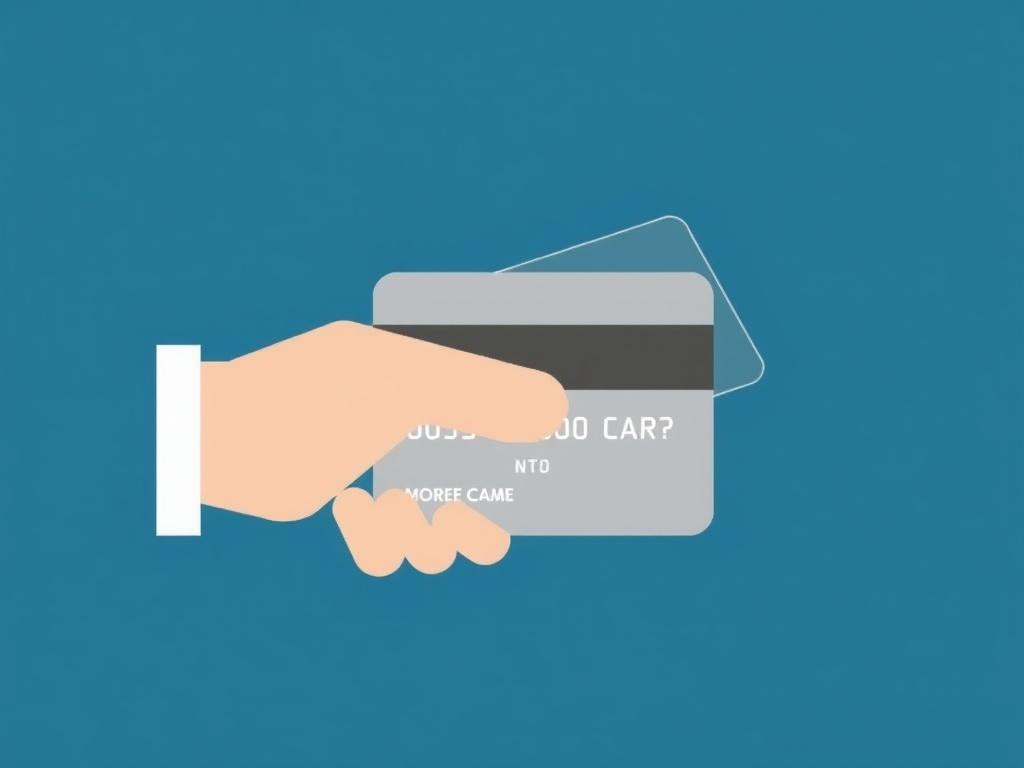SQLITE NOT INSTALLED
Opening and managing credit cards is an essential part of modern financial life. But when it comes to closing a credit card, many people worry about how it might affect their credit score. It’s a common question: does closing a credit card hurt your credit score? The answer isn’t always straightforward because it depends on various factors. In this article, we’ll explore how closing a credit card affects your credit score, why it matters, and the best ways to handle your credit cards without damaging your credit health.
Содержание
Understanding Credit Scores and How They Work

Before diving into the details of closing a credit card, it’s important to understand what a credit score actually is. A credit score is a number that lenders use to evaluate your creditworthiness. This number is based on your credit history and reflects how likely you are to repay borrowed money on time. The most commonly used credit score is the FICO score, which ranges from 300 to 850, with higher scores indicating better credit.
Factors That Influence Your Credit Score
Your credit score is calculated using several key components. These include:
- Payment History (35%) – This is the record of whether you pay your bills on time. Late or missed payments hurt your score the most.
- Credit Utilization Ratio (30%) – This is the amount of credit you’re using compared to your total available credit.
- Length of Credit History (15%) – The longer your credit accounts have been open, the better this is for your score.
- New Credit (10%) – Opening several new accounts in a short time can lower your score.
- Types of Credit (10%) – Having different types of credit can be beneficial.
Since closing a credit card can impact several of these factors, understanding them helps explain why your credit score might change after closing an account.
How Closing a Credit Card Affects Your Credit Score

So, does closing a credit card hurt your credit score? The short answer: it can, but it depends on your individual situation and how you manage your other credit accounts. Let’s break down the specific ways closing a credit card might impact your credit score.
Impact on Credit Utilization Ratio
One of the most significant ways closing a credit card can hurt your credit score is through its effect on your credit utilization ratio. This ratio compares the amount of credit you’re currently using to your total available credit. For example, if you have $1,000 in balances on cards with a combined credit limit of $10,000, your utilization is 10%.
When you close a credit card, you lose that card’s credit limit, which means your total available credit decreases. Unless your balances decrease at the same time, your credit utilization will go up. Since credit utilization accounts for about 30% of your score, this increase can have a noticeable negative impact.
Effect on Length of Credit History
Another factor influenced by closing a credit card is the length of your credit history. Closed accounts in good standing typically remain on your credit report for up to 10 years. This means that closing a long-established card won’t immediately shorten your credit history, but eventually, when it drops off, your average account age might decrease.
If the closed card is your oldest credit account, this can have a bigger impact on your credit score compared to closing a newer card. The length of credit history typically makes up about 15% of your credit score, so while its impact is less than payment history or utilization, it’s still important.
Payment History Remains Important
It’s important to note that closing a credit card does not erase the positive payment history associated with the account. This history remains on your credit report for several years and continues to contribute positively to your credit score. However, if you have any overdue payments or negative marks on that card, those will also remain for a while.
Closing a Card Can Affect Your Credit Mix
Credit mix, which is around 10% of your score, reflects the variety of credit types you have — such as credit cards, mortgages, car loans, and personal loans. If you only have a few credit cards and you close one, you might reduce your credit mix slightly. This effect is usually minor but could contribute to a small drop in your credit score.
When Closing a Credit Card Might Be a Good Idea
Despite potential downsides, there are legitimate reasons to close a credit card. Being aware of when it makes sense to close one can save you from damaging your credit unnecessarily.
High Annual Fees on Unused Cards
If you have a credit card that you rarely use but still pay a high annual fee, it might be better to close it. Paying fees for unused credit doesn’t make financial sense. Just be sure to account for potential score impacts by following good credit habits when you close it.
Temptation to Overspend
Some people find it easier to control their spending if they have fewer credit cards available. If having a particular card tempts you to overspend and accumulate debt, closing it might help you build better financial discipline.
Fraud Concerns or Account Issues
If a credit card company’s security protocols are lacking, or you’ve experienced fraud on a particular card, closing the card might be the prudent option. Safety is important, even if your credit score takes a slight hit temporarily.
Cards You No Longer Use or Need
There’s no point in holding onto multiple cards if you don’t use them. However, instead of immediately closing an old card, think carefully about the timing and overall impact.
How to Close a Credit Card Without Hurting Your Credit Score
If you decide to close a credit card, there are practical steps you should follow to minimize the negative impact on your credit score.
Pay Off Your Balance First
Never close a credit card with an outstanding balance. Paying off your balance completely ensures that you don’t have debt left on a card that might belong to you but is closed. In some cases, the creditor might report the account as delinquent if balances are left unpaid.
Use Other Cards Wisely Before Closing
If the card you plan to close has a high credit limit that significantly contributes to your total available credit, try to pay down balances on your other cards before closing. This will help keep your overall credit utilization ratio lower after the card is closed.
Choose Which Card to Close Carefully
When deciding which card to close, consider closing newer accounts before older ones to preserve the length of your credit history. Also, avoid closing cards that you use regularly or that have rewards or benefits that you value.
Contact Your Card Issuer and Confirm Closure
Call your card issuer to close the account formally. Request written confirmation that your account is closed with a zero balance. This documentation is valuable in case you need to dispute any future issues on your credit report.
Monitor Your Credit Report
After closing a card, keep an eye on your credit reports to ensure the account is reported as closed and balances are accurate. You can check your credit report for free once a year on AnnualCreditReport.com from each of the three credit bureaus.
Alternatives to Closing a Credit Card

If your main concern is reducing fees or avoiding overspending, but you don’t want to hurt your credit score, consider these alternatives to outright closing your card.
Downgrade to a No-Fee Card
Many credit card issuers allow you to switch from a card with an annual fee to a no-fee version. This helps you keep the credit line and length of history while eliminating fees.
Reduce Your Credit Limit
If you fear overspending but want to keep the account open, ask your issuer to reduce your credit limit. This lowers your spending power without closing the card.
Keep the Card for Emergencies Only
Sometimes, simply storing the card safely and not using it regularly can keep the account active without encouraging spending. Small occasional charges you pay off immediately can maintain the card’s active status.
How Long Does It Take for a Credit Score to Recover After Closing a Card?
If closing a credit card temporarily hurts your credit score, the good news is that your score can recover over time with responsible credit management. It often takes a few months to a year to see your credit score bounce back after changes like this.
As you make timely payments, keep utilization low, and avoid opening too many new accounts, your credit score can improve. Patience and good habits matter most.
Summary Table: Potential Impacts of Closing a Credit Card
| Factor | Impact When Closing a Card | How to Minimize Impact |
|---|---|---|
| Credit Utilization Ratio | Increases as total available credit decreases, possibly lowering score. | Pay down balances on other cards before closing. |
| Length of Credit History | Potential decrease over time if you close your oldest card. | Close newer cards first; keep older cards open. |
| Payment History | Remains on credit report even after closure, so no immediate negative effect. | Maintain good payment history on all accounts. |
| Credit Mix | May slightly decrease if you reduce the number of card accounts. | Maintain a mix of credit types if possible. |
| New Credit | Generally not affected by closing cards, but frequent card churn can lower score. | Limit opening/closing cards frequently. |
Common Misconceptions About Closing Credit Cards
There are plenty of myths floating around about closing credit cards that often lead to confusion. Addressing these misconceptions is crucial.
You Must Close Old Credit Cards to Improve Your Credit Score
Some believe closing old or unused cards boosts their score by reducing “active accounts,” but this is false. Keeping old accounts open usually helps your score by lengthening your credit history and maintaining higher credit limits.
Closing a Credit Card Destroys Your Credit History Immediately
As mentioned earlier, account closure doesn’t erase your history right away. Positive payment history stays on your credit report for up to 10 years.
Closing One Card Won’t Make a Difference
While closing a single card doesn’t always have a big effect, it can if it significantly affects your credit utilization or credit age. It’s important to assess the individual card’s role in your credit profile.
Keeping a Card With a $0 Balance Won’t Hurt You
Actually, keeping cards open with zero balance benefits your credit by keeping your total available credit high and maintaining your credit history length.
Final Thoughts: Balancing Credit Card Closures and Credit Score
Managing your credit is a balancing act. Closing credit cards can sometimes hurt your credit score, but with careful planning, it doesn’t have to. Understanding how credit utilization, payment history, and credit age work together is key to making smart decisions.
If you’re thinking about closing a credit card, weigh the pros and cons, consider alternatives like downgrading your card, and focus on paying down existing balances. By being strategic, you can protect your credit score while simplifying your financial life.
Key Tips to Remember:
- Always pay off your card balances before closing.
- Avoid closing your oldest or highest-limit cards first.
- Keep your credit utilization ratio low across remaining cards.
- Monitor your credit reports regularly to watch for changes.
Following these guidelines ensures that closing a credit card won’t hurt your credit score as badly as you might fear, and in some cases, it can even offer you financial relief without sacrificing credit health.
Conclusion
Closing a credit card can have some impact on your credit score, primarily through changes to your credit utilization ratio and the length of your credit history. However, with careful planning and good credit habits, the negative effects can be minimized or avoided altogether. It’s important to assess why you want to close the card and consider alternatives like downgrading to no-fee cards or reducing limits instead. Always pay off balances before closing accounts and avoid closing your oldest cards unless absolutely necessary. Remember that credit scores are dynamic and can recover over time when you practice responsible credit management. In the end, making informed decisions about your credit cards will keep your credit score healthy and your financial future bright.
Опубликовано: 23 July 2025 Кредитрон – блог о кредитах, финансах и прочих реверансах
Кредитрон – блог о кредитах, финансах и прочих реверансах

